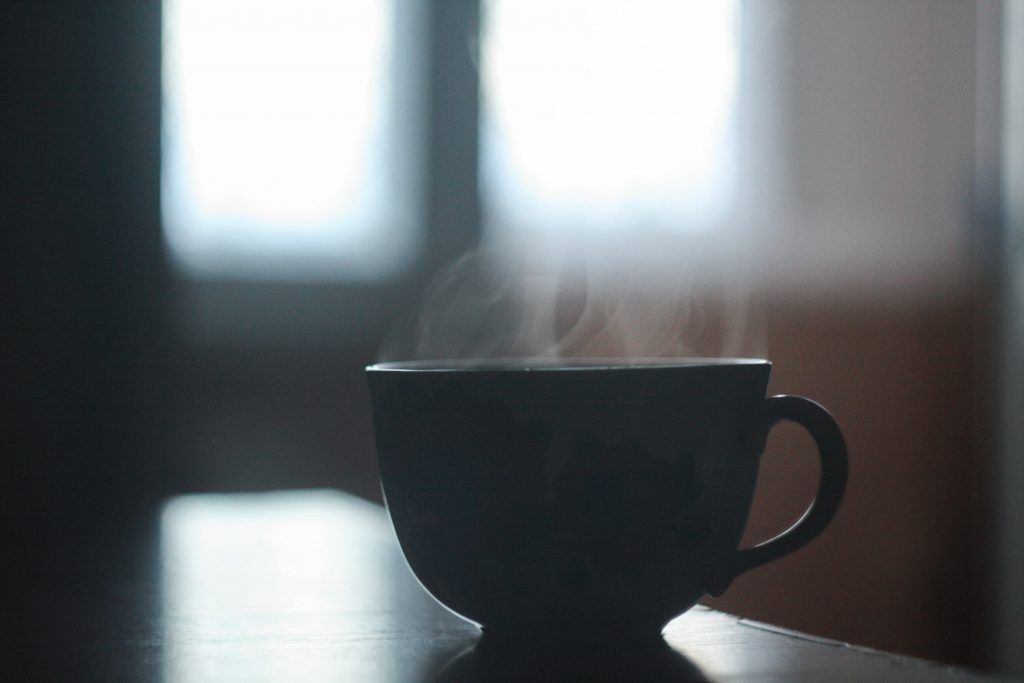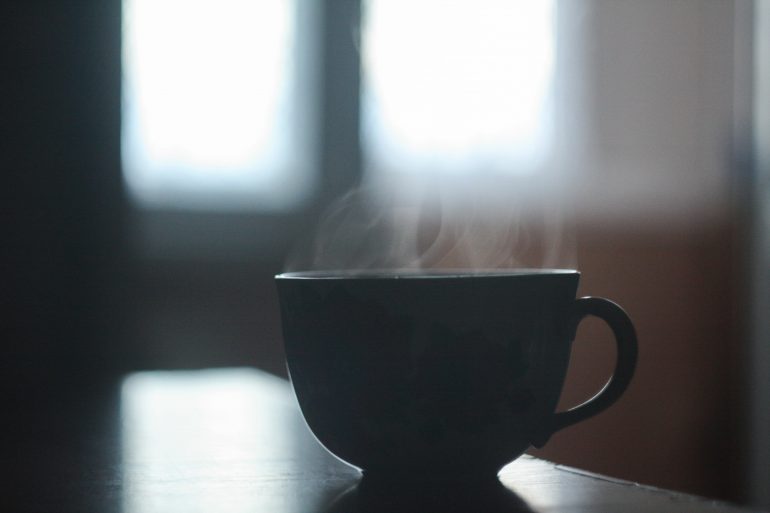Abbie Barker

After her release from the hospital, my sister appears in my front hall with two mesh laundry bags—one light, one dark.
“I didn’t know you were coming.”
“It’s Wednesday. I do laundry on Wednesdays.”
I cling to a mug of Earl Grey, still steeping. The milky liquid is layered and complex. I’ve spent these months acclimating to its taste, dousing it in honey.
My sister wrestles with the laundry. A bag slides down her thigh. “Are you going to help?”
I hold up my mug as proof of everything I can’t explain—her eternal interruptions, my withering tolerance. I started drinking tea after Mom died. My therapist says this is an appropriate response to grief. She said this to comfort me, but lately I find more comfort in listing inappropriate responses: hoarding illegal fireworks, rescuing exotic cats, dousing everything that offends me in gasoline.
My sister flops her loads on the linoleum beside my stacked machines. She rifles through an upper cabinet and tells me I’m out of detergent.
“Maybe you should start using the machines in your building,” I say.
“The maintenance man steals my bras.”
“You didn’t see him take any.”
“Two went missing. He was the only one around.” She holds up two fingers.
I add to my list of inappropriate responses: changing the locks, moving to an off-grid yurt, dousing my sister’s laundry in gasoline.
“You don’t believe me,” she says.
“I believe… you’re sick.”
She pounds her fist against the pale wall. Not a pound that leaves an impression, but an exclamation point. “I know he made a copy of my key. Some of my prescriptions have been moved.”
“Isn’t maintenance supposed to have copies of your keys?”
“He can’t just barge in!”
“Unless he thinks you’re dead?” My sister has installed an alarm, added a deadbolt, booby-trapped the door. Mostly she charges the maintenance man with moving things incrementally, as if his only ambition is to nudge her to madness.
She kicks her laundry bags into the corner. “This room is a mess,” she says.
She’s not wrong. The narrow room serves too many purposes: laundry, half-bath, pantry, utility closet. “You could organize it.”
“Are you going to pay me?”
“I wasn’t planning on it.”
“You sound like Dad.”
“A little help would be nice.” I can feel my tea cooling. Mom used to reheat the same mug of Earl Grey over and over. It bothered me how she couldn’t sit still, how she never took a moment for herself.
My sister taps her foot, looks at the ceiling, the wall. “Is there anything I can make a sandwich with?”
“Are you going to go pick up some detergent?”
“Forget it.” She brushes past me, zipping her jacket to her chin. “I just got out of the hospital and you want me to run your errands?”
I nod. I nod as she slams through my storm door, and I keep nodding as she disappears down the brick walkway. I nod at the two sagging mounds of unwashed clothes deserted on my laundry room floor. For every nod, I think of a less appropriate response: flipping my sister the bird, slipping a laxative into her next meal, hauling these piles of laundry to the dump. Mostly I think of jumping in the car and driving until I run out of gas. Or grief.
But my sister already knows I’ll text her later, and ask if she’s okay. She knows I’ll pick up the liquid Tide she prefers. She knows this because it’s what Mom would have done. I sip the over-steeped tea. It’s undrinkable now.
Abbie Barker’s writing is featured or forthcoming in Hobart, X-R-A-Y Literary Magazine, Ellipsis Zine, and Cease, Cows. She teaches college writing courses and lives with her husband and two kids in New Hampshire. She is a reader for Fractured Literary, and you can find her quietly lurking on Twitter at @AbbieMBarker.



